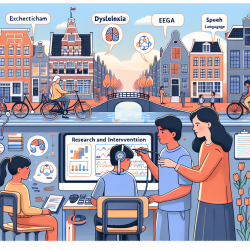Introduction
In the realm of speech-language pathology, creating optimal outcomes for children often requires a holistic understanding of various social determinants of health. One such determinant is employment status, particularly informal employment, which affects health and health equity significantly. A recent scoping review and modified e-Delphi survey titled How does informal employment affect health and health equity? Emerging gaps in research from a scoping review and modified e-Delphi survey sheds light on this complex issue.
Understanding Informal Employment
Informal employment refers to work that is not regulated by national labor legislation, lacks social protection, and often does not provide employment benefits. This type of employment is prevalent in both low- and middle-income countries (LMICs) and high-income countries (HICs), affecting a significant portion of the global workforce.
Key Findings from the Research
The scoping review analyzed 57 articles, revealing that informal employment does not inherently lead to poorer health outcomes compared to formal employment. However, it does highlight vulnerabilities such as harmful working conditions and limited access to health and social protections. These factors can vary significantly across different sub-groups and country contexts.
Implications for Practitioners
For practitioners in speech-language pathology, understanding the broader social context of informal employment can inform strategies to support children from families affected by such employment. Here are some actionable insights:
- Awareness and Advocacy: Practitioners can advocate for policies that improve working conditions and access to health care for families engaged in informal employment.
- Interdisciplinary Collaboration: Collaborate with social workers and policy makers to address the social determinants affecting children’s health and development.
- Research and Education: Encourage further research into the intersection of informal employment and health, particularly focusing on gender and other social factors.
Encouraging Further Research
The study identifies significant gaps in current research, particularly the need for more comparative policy research and qualitative health research. Practitioners can contribute to filling these gaps by participating in interdisciplinary studies and advocating for comprehensive data collection on informal employment's impact on health.
Conclusion
By understanding and addressing the implications of informal employment, speech-language pathologists can play a crucial role in improving health outcomes and equity for children. This requires a commitment to data-driven decision-making and a collaborative approach to tackling social determinants of health.
To read the original research paper, please follow this link: How does informal employment affect health and health equity? Emerging gaps in research from a scoping review and modified e-Delphi survey.










